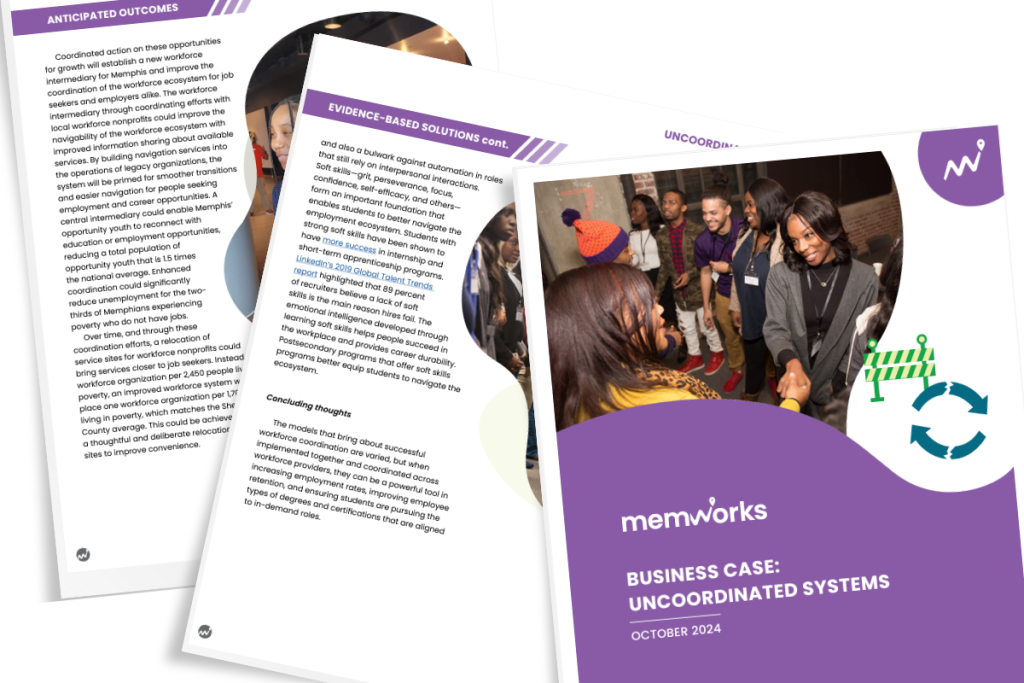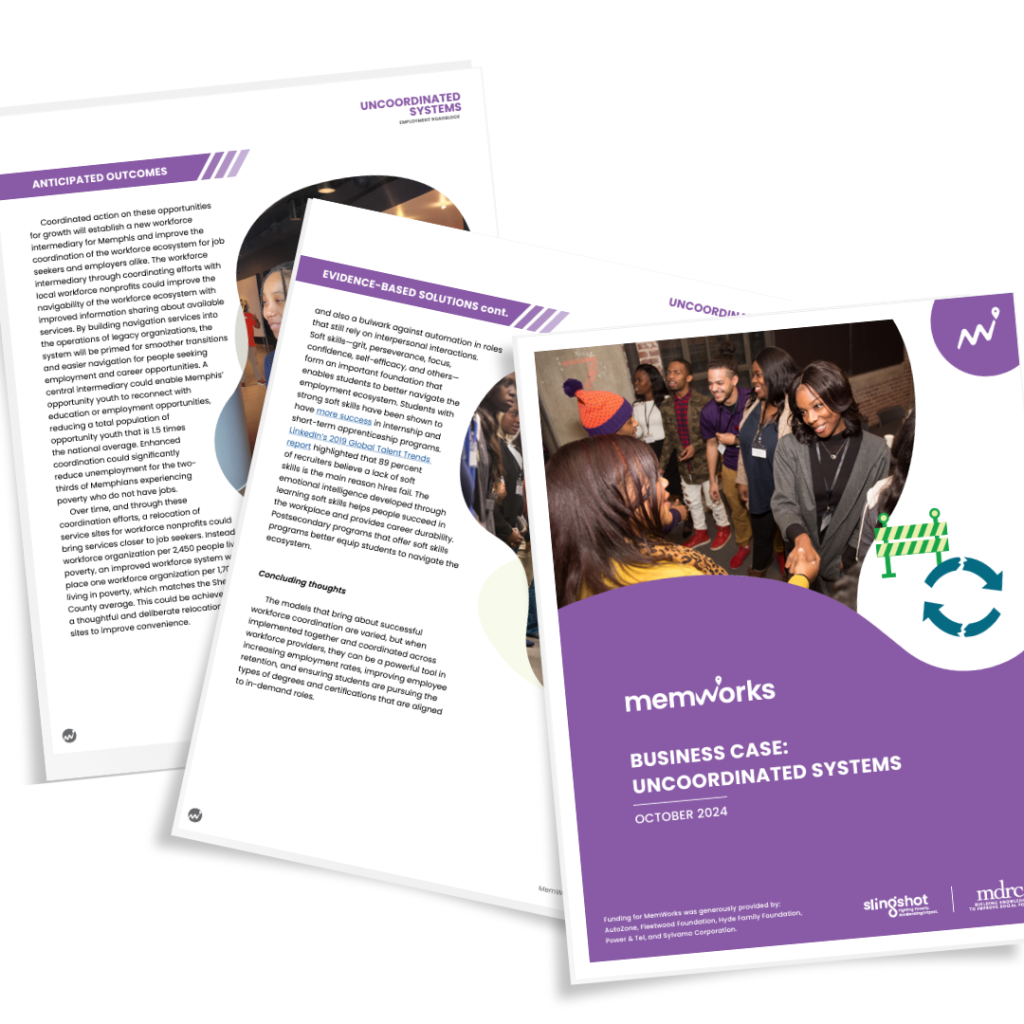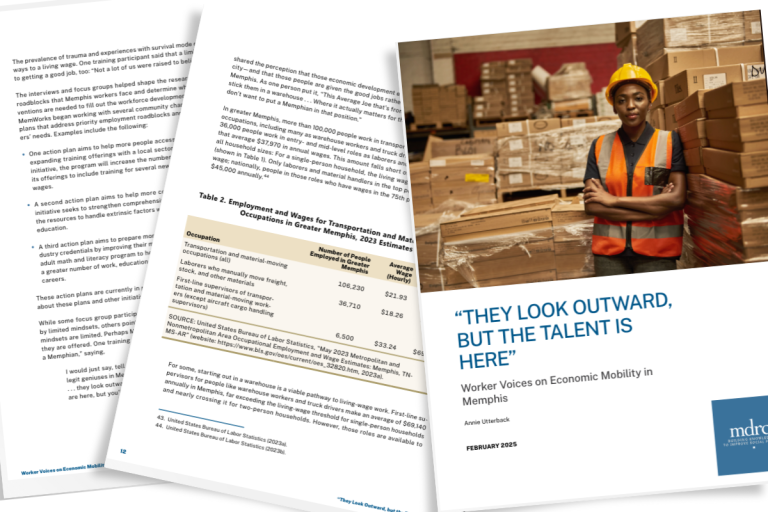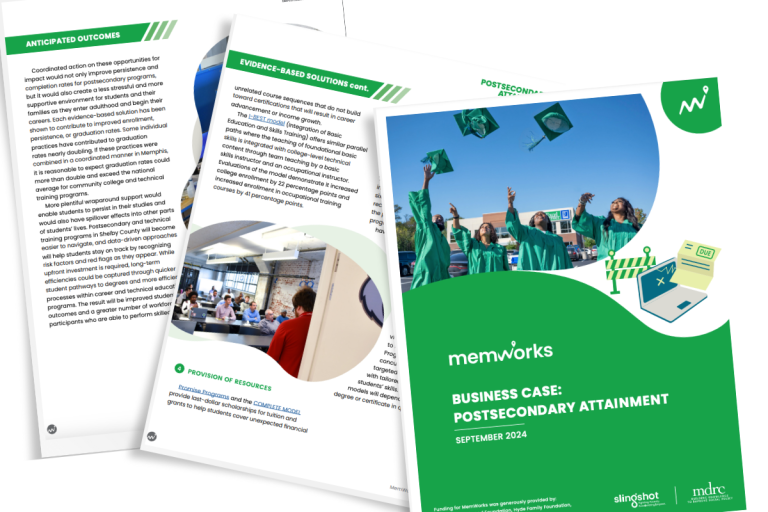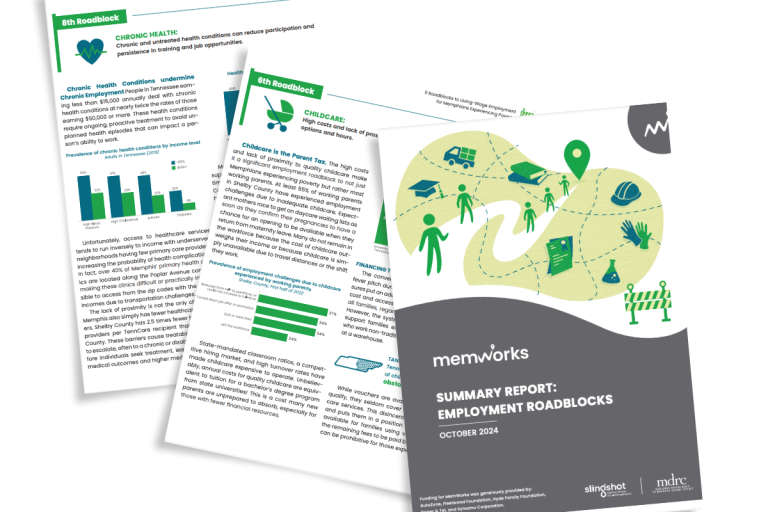We are grateful to publish our next business case report. The purpose of these business cases is to summarize all the information from the MemWorks initiative needed to best help our community overcome an employment roadblock for our neighbors experiencing poverty. Each business case report includes a summary of the evidence, curated evidence-based interventions with case examples, analysis of the Memphis landscape, specific opportunities for impact, and the anticipated outcomes.
Uncoordinated Workforce Systems
This business case is focused on helping our workforce ecosystem become more integrated and aligning the efforts of the different types of workforce organizations. Memphis has over 130 workforce service providers, with limited resources to help people identify which organizations offer the services they need and frequently requiring people to engage with multiple service providers across multiple sites. If we want to enable the conditions where Memphis Works for Everyone, we need to implement evidence-based solutions that help the various parts of our workforce community function like a system.
As you decide how to be a part of the solution, consider this business case your map for how to effectively help increase workforce system coordination. MemWorks has determined the root causes of employment roadblocks for Memphians experiencing poverty, and now is the time for us to implement evidence-based solutions – together. If done with persistence and collaboration, we can help create pathways to economic mobility for all Memphians.
Using this report to further empower your efforts
Each of us are uniquely positioned to help tackle the uncoordinated workforce system roadblock. It requires the varying roles we each play and the individual approaches we can contribute working together to address the various aspects of this roadblock. To help support your efforts, below we have outlined how different types of stakeholders might be able to use the insights from the Uncoordinated Workforce Systems Business Case Report.
Philanthropists
Consider ways your funding could contribute to greater collaboration between organizations. Are there opportunities to fund integrated processes or information sharing between workforce organizations you support? How can you work with funders of organizations complementary to those you support to encourage collaboration between them?
Corporate Leaders
Engage with career & technical training providers to create pipelines for roles in your business. How can your business support the implementation or expansion of training programs relevant to the available jobs at your business? In what ways can your staff help shape training curriculum or contribute to the instruction for relevant training programs?
Career & Technical Education Providers
Explore opportunities to collaborate with other organizations that also support your students. How can your organizations share information on student progress and needs? Which organizations could you partner with to provide additional services for your students that would help increase program completion or job placement?
Business Associations
Disseminate across the workforce ecosystem the skills that are necessary for high-demand jobs within your sector(s). How can you create a consolidated list of high-demand skills from across the businesses in your association? In what ways can you influence training providers to ensure high-demand skills are being taught in their programs?
Local Government Leaders
Evaluate the impact policies might have on impeding organizations from collaborating or sharing information. How could policies be adjusted to enable greater data sharing between organizations while still protecting privacy? In what ways could funding be aligned to incentivize not only training outcomes but also employment outcomes?
Workforce Development Nonprofits
Explore ways to build pathways that enable your participants to receive benefits from other organizations. What additional types of support would help your participants realize empowering employment outcomes? How could you identify effective organizations that provide these services and develop referral and tracking processes with them?
We hope the above questions and prompts jumpstart how you can contribute to helping enable coordinated workforce systems for Memphians living in poverty. We encourage you to use this business case report to design new efforts, enhance existing efforts, and galvanize support to overcome the challenges to uncoordinated workforce systems. In the coming weeks, we will release additional business cases to help empower our community with the interventions and approaches that can most effectively overcome Memphis’ other employment roadblocks.
